Every country has its own culture and unique customs that come with it. Understanding the social etiquette of the country before visiting can help to make the experience less overwhelming.
In China, you might be surprised to find that burping is considered a way of complimenting the chef or that a gift will be refused several times before it is accepted.
Here are 13 customs to know before traveling to China.
1. Chopsticks are never placed upright in a rice bowl.
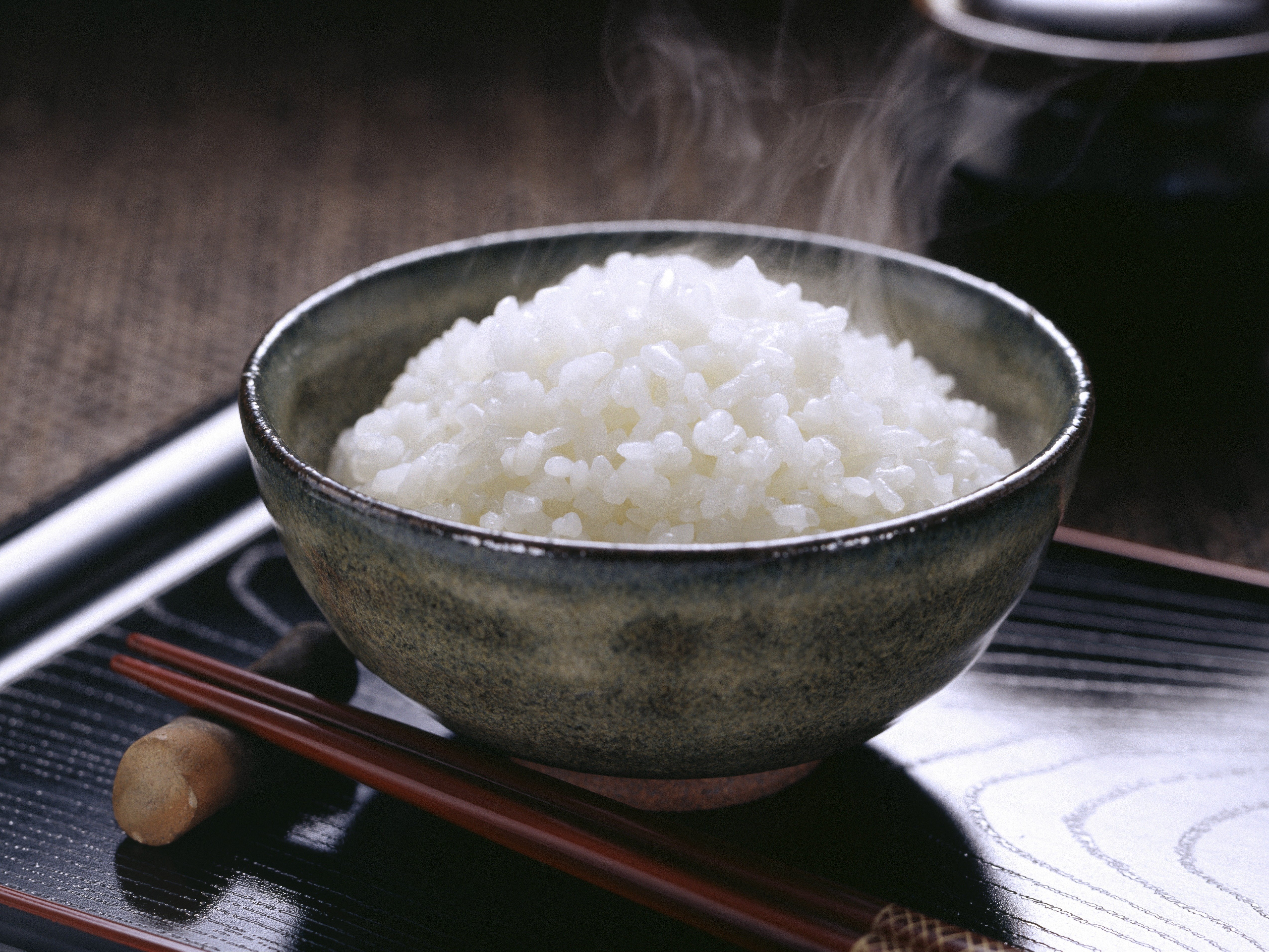
Never leave chopsticks upright in a rice bowl. This is reminiscent of a ritual that’s made as an offering to the dead.
Chopsticks should also never be used in your hands when making a gesture.
2. Burping is considered a sign of gratitude.
In China, burping is seen as a sign of satisfaction with the meal and is considered a compliment to the chef, so don’t be surprised if it happens at the dinner table.
3. Tea cups are constantly refilled.
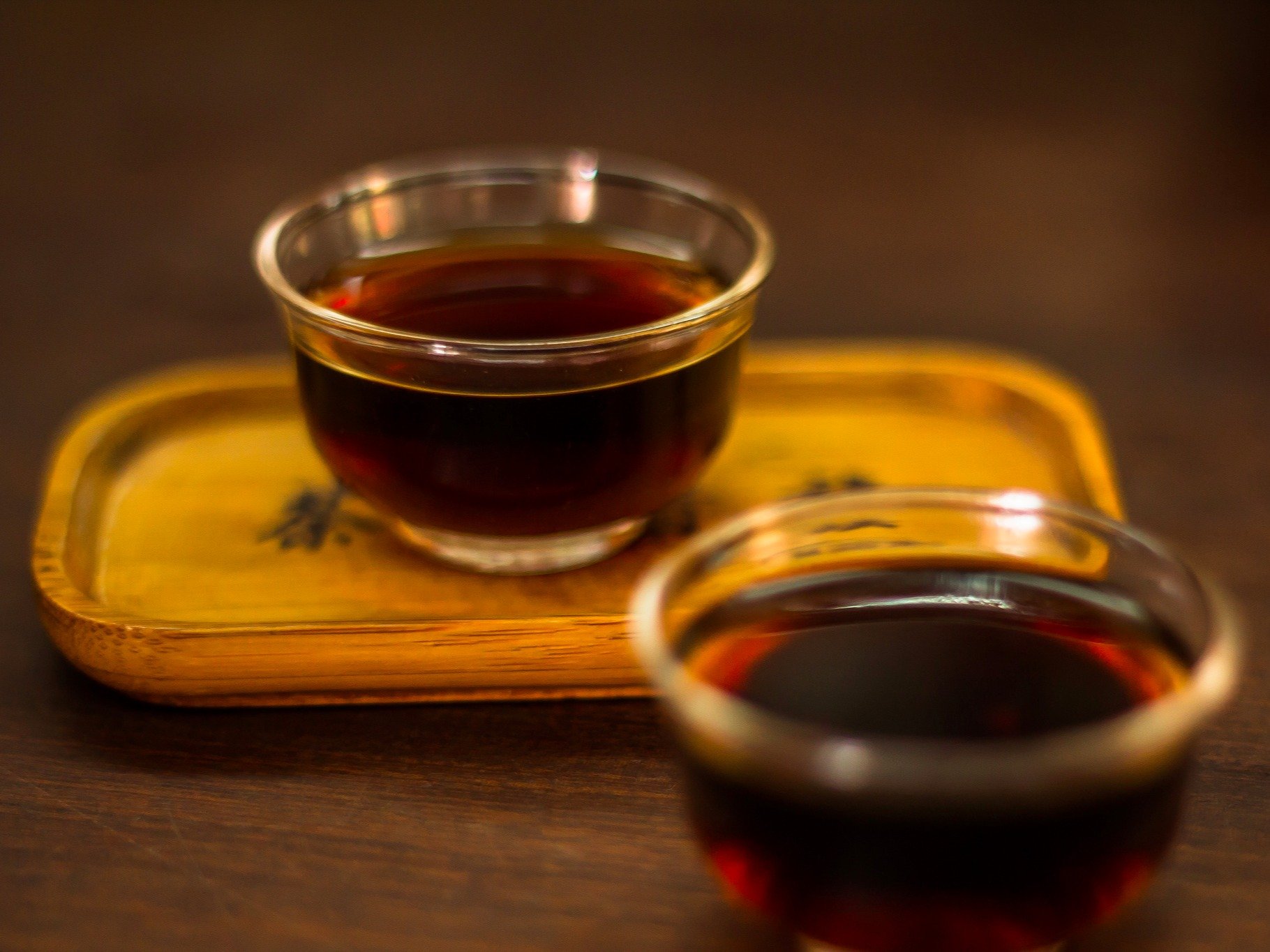
This tradition is known as tea tapping. Hosts will regularly ensure that teacups don’t go empty and when they refill the cups, the person whose cup is filled will tap the table in response to show thanks.
4. A gift will be refused a number of times before it is accepted.

Don’t be offended if you offer a gift and it is refused, as it is customary in China to refuse the first offer. Sometimes, the etiquette is to refuse the gift three times, though it may not always take this many tries.
In general, the expectation is that a gift is politely refused at first, even if it is desired, and will eventually be accepted after a few offers.
5. Spitting loudly in public is common.
It’s not surprising to see people spitting in public in China. Attempts are being made to try and lessen the practice, but it isn’t considered rude to spit while walking on the street or around others—even on public transportation and sometimes indoors.
6. Police will sometimes use geese instead of guard dogs.
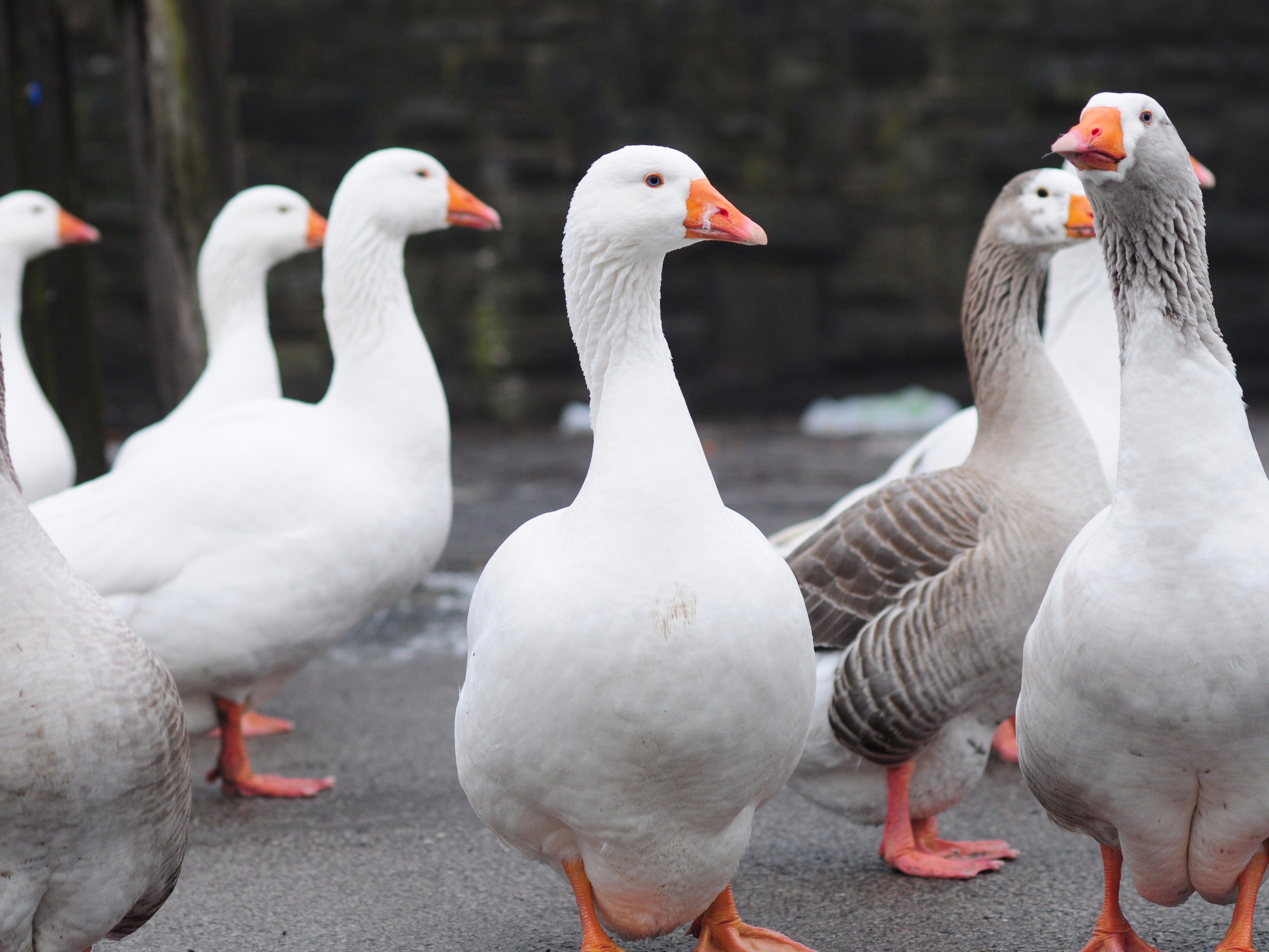
In places like China’s Xinjiang province, domesticated geese are used by law enforcement. According to Chinese authorities, they have strong vision, they’re loud, and they can be aggressive, which is why they’re used in place of guard dogs.
7. Pointing can be considered rude.
In some areas surrounding Tibet, Jiuzhaiguo and places with a Tibetan population, pointing can be seen as a rude gesture.
Instead of using your fingers to point at a person or object, the customary gesture is to use your full hand with your palm facing up and your fingers flat.
8. Compliments shouldn’t be accepted graciously.
While it might seem strange to refuse a compliment, it is common to refuse compliments in China since accepting a compliment from the beginning can be seen as a sign of vanity.
9. Tipping can be seen as offensive.
While tipping might be common in restaurants in most cities, it is generally unnecessary in China and can even be considered impolite. Tips are typically only given when doing tour-related activities or at hotels.
10. You may be asked to take photos with locals.
Sometimes, Chinese groups or families may ask to pose for a photo with you, especially in public places. Often, the group will reciprocate by asking if you’d like to take a picture with them.
11. Split pants are often used instead of diapers.
Split pants are often used in China in place of diapers, allowing children to use the restroom when need be.
12. Full-face masks are sometimes worn to the beach.
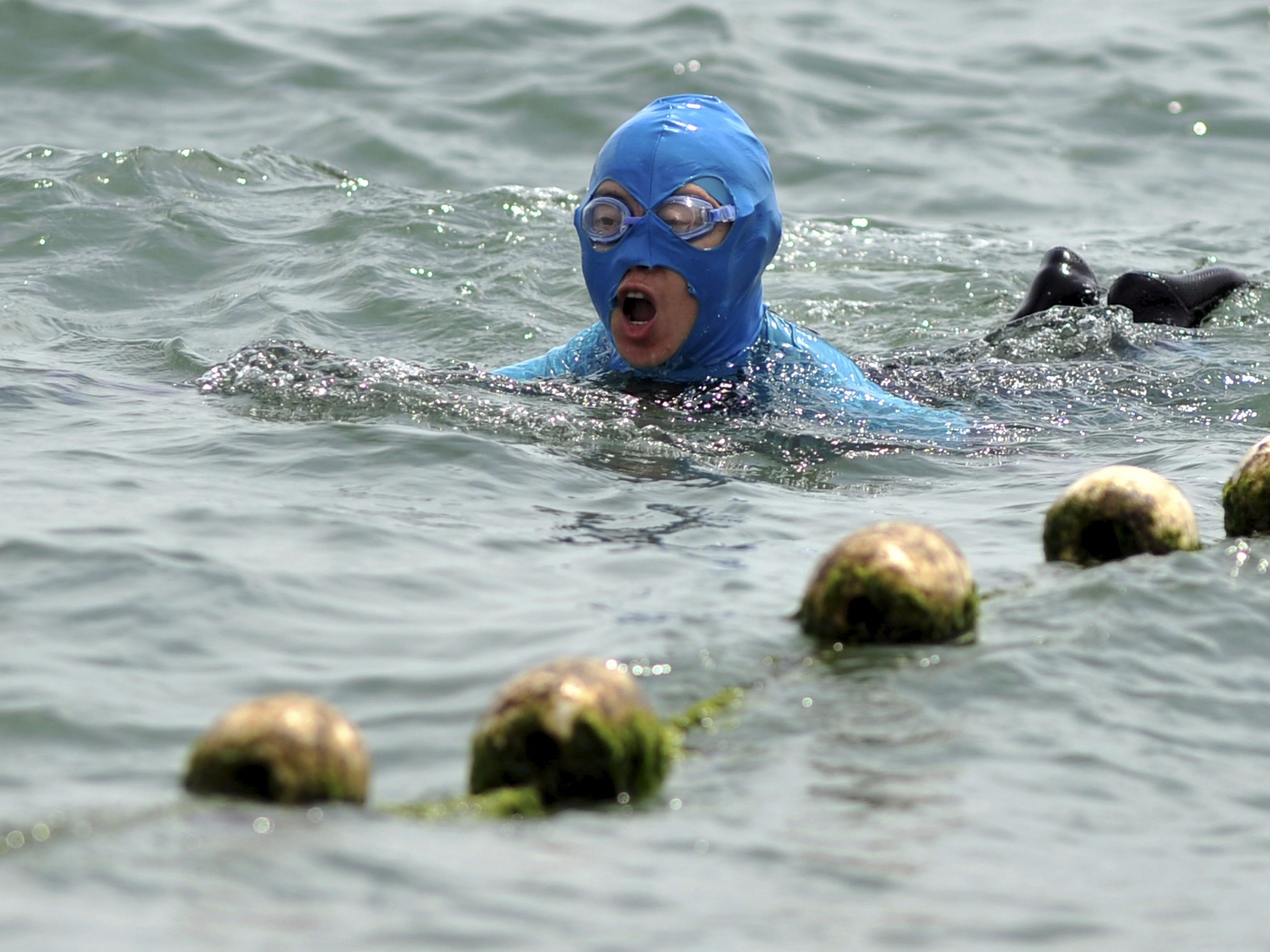
Having a pale complexion has been desired in Chinese culture for years, but the face-kini is a relatively new trend spanning some of the country’s beaches.
Created in 2004, the face-kini—a face mask that protects the skin from the sun and from jellyfish stings—started to appear on the beaches of the coastal city of Qingdao and has become popular for some of the women in China.
13. People regularly take naps on the street.
Naps are a common activity in China and you’ll often see people see people sleeping on the train, bus, car, or in unconventional places on the street.
The activity is so well known, that there is a website—Sleeping Chinese—dedicated to photographing the nation’s habit of sleeping in unusual places.

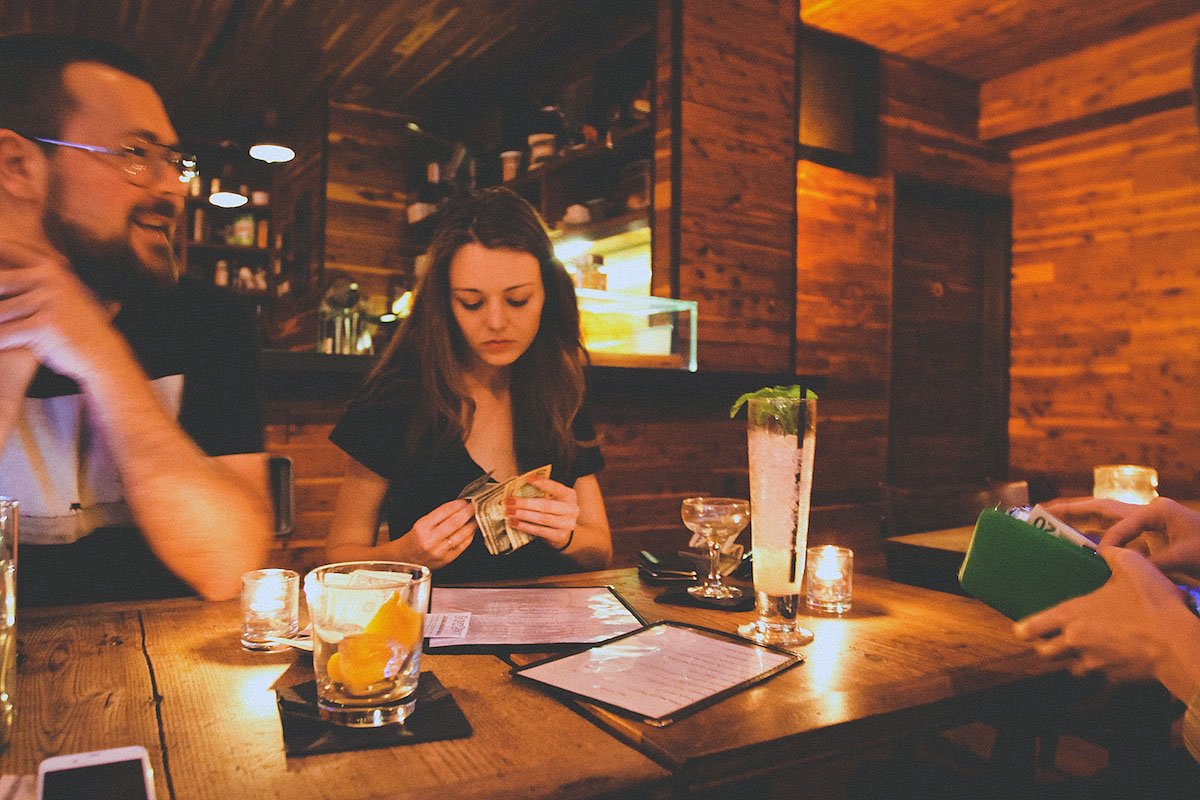

 Japanese sushi chain responds to racism claims after serving excessive wasabi to foreigners
Japanese sushi chain responds to racism claims after serving excessive wasabi to foreigners 10 tips to stop you from embarrassing yourself in China
10 tips to stop you from embarrassing yourself in China [Deleted] Article written for April Fool’s Day 2018
[Deleted] Article written for April Fool’s Day 2018 Is there any point to holding your chopsticks the “correct” way? Let’s find out【Experiment】
Is there any point to holding your chopsticks the “correct” way? Let’s find out【Experiment】 Japanese airline leaves passenger behind at rural island airport after he refuses to wear mask
Japanese airline leaves passenger behind at rural island airport after he refuses to wear mask Non-tourist trap fish market in northeastern Japan captures our hearts with amazing sashimi
Non-tourist trap fish market in northeastern Japan captures our hearts with amazing sashimi Kyoto becomes City of Yokai, with Night Parade of One Hundred Demons festival this autumn
Kyoto becomes City of Yokai, with Night Parade of One Hundred Demons festival this autumn Japan’s newest life-size Gundam is finished, receives Shinto blessing in Osaka【Video】
Japan’s newest life-size Gundam is finished, receives Shinto blessing in Osaka【Video】 Chinese drivers flocking to Japan for quick and easy route to international licenses
Chinese drivers flocking to Japan for quick and easy route to international licenses One of Japan’s most awesome rail passes, the Seishun 18 Ticket, just got a lot less awesome
One of Japan’s most awesome rail passes, the Seishun 18 Ticket, just got a lot less awesome No train, no hotel – How to do an overnight bus trip to Kanazawa from Tokyo – Part 1【Photos】
No train, no hotel – How to do an overnight bus trip to Kanazawa from Tokyo – Part 1【Photos】 McDonald’s Japan debuts new anime girl mascot character with incredibly long name
McDonald’s Japan debuts new anime girl mascot character with incredibly long name Korean basketball coach humiliates player live on TV, tapes his mouth shut
Korean basketball coach humiliates player live on TV, tapes his mouth shut We try a delicious hidden gem in Fukuoka, unknown to even Japanese people
We try a delicious hidden gem in Fukuoka, unknown to even Japanese people Studio Ghibli releases new “Butterflies in the Forest” Totoro towels
Studio Ghibli releases new “Butterflies in the Forest” Totoro towels What’s the deal with akebi, the perfectly purple, alien-like fruit that’s in season now in Japan?
What’s the deal with akebi, the perfectly purple, alien-like fruit that’s in season now in Japan? Totoro, Calcifer, other Ghibli stars returning as humidifiers ahead of Japan’s dry winter days【Pics】
Totoro, Calcifer, other Ghibli stars returning as humidifiers ahead of Japan’s dry winter days【Pics】 Is downtown Tokyo’s crazy cheap 290-yen bento boxed lunch shop still around, and is it still cheap?
Is downtown Tokyo’s crazy cheap 290-yen bento boxed lunch shop still around, and is it still cheap? Meet the kind Japanese grandpa who takes photos for tourists at the Hachiko statue in Shibuya
Meet the kind Japanese grandpa who takes photos for tourists at the Hachiko statue in Shibuya Studio Ghibli releases new mug tumblers featuring anime movie characters
Studio Ghibli releases new mug tumblers featuring anime movie characters How to power up the coolest cheap souvenir from Nintendo’s official shop with a trip to Daiso
How to power up the coolest cheap souvenir from Nintendo’s official shop with a trip to Daiso Why was the Lithuanian ambassador to Japan working in a fast food beef bowl joint in Tokyo?
Why was the Lithuanian ambassador to Japan working in a fast food beef bowl joint in Tokyo? Line of foreign tourists leads us to Akihabara’s meatiest fatty ramen【Taste test】
Line of foreign tourists leads us to Akihabara’s meatiest fatty ramen【Taste test】 Japanese convenience store Family Mart announces abolishment of eat-in spaces
Japanese convenience store Family Mart announces abolishment of eat-in spaces Studio Ghibli releases new insect whistle necklace from Nausicaä of the Valley of the Wind
Studio Ghibli releases new insect whistle necklace from Nausicaä of the Valley of the Wind Totoro sequel anime Mei and the Baby Catbus will screen at Ghibli Park this winter
Totoro sequel anime Mei and the Baby Catbus will screen at Ghibli Park this winter Starbucks Japan unveils Halloween Frappuccino for 2024, and it’s like drinking a magic spell
Starbucks Japan unveils Halloween Frappuccino for 2024, and it’s like drinking a magic spell Evangelion creator Hideaki Anno returning to anime with new project for 50-year-old franchise
Evangelion creator Hideaki Anno returning to anime with new project for 50-year-old franchise Studio Ghibli releases new Howl’s Moving Castle goods that capture the magic from the anime movie
Studio Ghibli releases new Howl’s Moving Castle goods that capture the magic from the anime movie Adult Jam Bread causes a stir at store in Tokyo
Adult Jam Bread causes a stir at store in Tokyo Right now is the peak time to go to Tokyo’s most-beautiful-view beer garden【Photos】
Right now is the peak time to go to Tokyo’s most-beautiful-view beer garden【Photos】 Pizza Hut adds a “Guilty Secret” sandwich to its menu for a limited time
Pizza Hut adds a “Guilty Secret” sandwich to its menu for a limited time McDonald’s new Happy Meals offer up cute and practical Sanrio lifestyle goods
McDonald’s new Happy Meals offer up cute and practical Sanrio lifestyle goods Foreign tourists on Shinkansen bullet train break suitcase etiquette, angering local passengers
Foreign tourists on Shinkansen bullet train break suitcase etiquette, angering local passengers [Deleted] Article written for April Fool’s Day 2018
[Deleted] Article written for April Fool’s Day 2018 Japanese government to make first change to romanization spelling rules since the 1950s
Japanese government to make first change to romanization spelling rules since the 1950s Foreigner’s request for help in Tokyo makes us sad for the state of society
Foreigner’s request for help in Tokyo makes us sad for the state of society Ghibli founders Toshio Suzuki and Hayao Miyazaki contribute to Japanese whisky Totoro label design
Ghibli founders Toshio Suzuki and Hayao Miyazaki contribute to Japanese whisky Totoro label design Tokyo’s most famous Starbucks is closed
Tokyo’s most famous Starbucks is closed Princesses, fruits, and blacksmiths: Study reveals the 30 most unusual family names in Japan
Princesses, fruits, and blacksmiths: Study reveals the 30 most unusual family names in Japan Doraemon found buried at sea as scene from 1993 anime becomes real life【Photos】
Doraemon found buried at sea as scene from 1993 anime becomes real life【Photos】 China tried to build a replica of Manhattan… and it’s not looking so great
China tried to build a replica of Manhattan… and it’s not looking so great Japanese city’s plan to make convenience store restrooms public restrooms stinks, owners think
Japanese city’s plan to make convenience store restrooms public restrooms stinks, owners think Hey, you can’t do that! — 10 things that will get you on China’s no-fly list for life
Hey, you can’t do that! — 10 things that will get you on China’s no-fly list for life How not to bathe at a public bathing facility in Japan
How not to bathe at a public bathing facility in Japan Kyoto code cracked? Japanese bartender translates Kyotoites’ compliments into hidden insults
Kyoto code cracked? Japanese bartender translates Kyotoites’ compliments into hidden insults A Warm Notice from your friends at Star Hotel
A Warm Notice from your friends at Star Hotel Gyoza no Ohsho president’s murder trial mulling not letting average citizens become judges
Gyoza no Ohsho president’s murder trial mulling not letting average citizens become judges Stingy people rejoice as Japanese restaurants in New York introduce a ban on tipping
Stingy people rejoice as Japanese restaurants in New York introduce a ban on tipping Japan bad train manners survey reminds us of three things to watch out for while riding the rails
Japan bad train manners survey reminds us of three things to watch out for while riding the rails We test out Uniqlo’s “new and improved” Airism mask for form, fashion, and function
We test out Uniqlo’s “new and improved” Airism mask for form, fashion, and function Kyoto has had enough of rude tourists, created an infographic to show how to visit politely
Kyoto has had enough of rude tourists, created an infographic to show how to visit politely Government begins study into tattoo bans in public baths
Government begins study into tattoo bans in public baths Honne vs Tatemae: When do Japanese people lie and when do they reveal their true feelings?
Honne vs Tatemae: When do Japanese people lie and when do they reveal their true feelings? Chopstick anxiety: Painfully shy Japanese diners struggle with communal restaurant containers
Chopstick anxiety: Painfully shy Japanese diners struggle with communal restaurant containers
Leave a Reply